|
|
|
Introduction |
Secluded Place |
Scrape | Mound | Burrow | Cavity | Plate |
Platform |
Pendant |
Sphere |
Cup | Host | |
Platform Nests
Platform
nests are typically very large and get bigger every year as new
material is added to freshen up the nest for the new breeding
season. They can be build on the ground, on high ledges, in
trees, on telephone poles or on man-made platforms provided for some
species subject to concern.
|
|
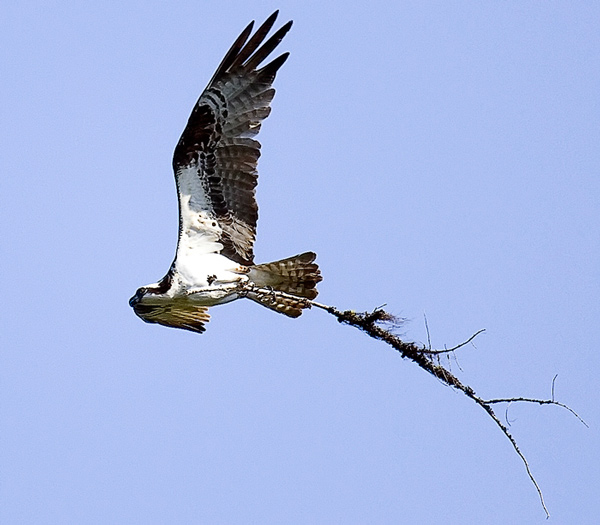 Ospreys
usually nest in trees or on man-made platforms not far from
water. Nests are often reused for many years and get to be
very large. A variety of different materials are used to
make or re-surface the nests which are large enough to accommodate
usually 3 growing birds and fairly large fish (up to four pounds
or so) which are provided for them to eat. Ospreys
usually nest in trees or on man-made platforms not far from
water. Nests are often reused for many years and get to be
very large. A variety of different materials are used to
make or re-surface the nests which are large enough to accommodate
usually 3 growing birds and fairly large fish (up to four pounds
or so) which are provided for them to eat. |
Gathering Nesting Material, by Kendall Brown
İKendall W. Brown
|
|
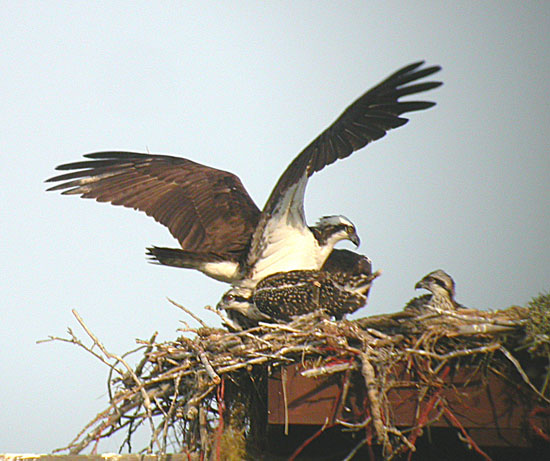 The
male provides fish for the female who incubates the eggs full-time
for between 32 and 48 days. (The incubation time varies a
lot depending on which continent the birds live on). The
male provides fish for the female who incubates the eggs full-time
for between 32 and 48 days. (The incubation time varies a
lot depending on which continent the birds live on). |
Growing Osprey, by Milt Moody
İMilton G. Moody
|
|
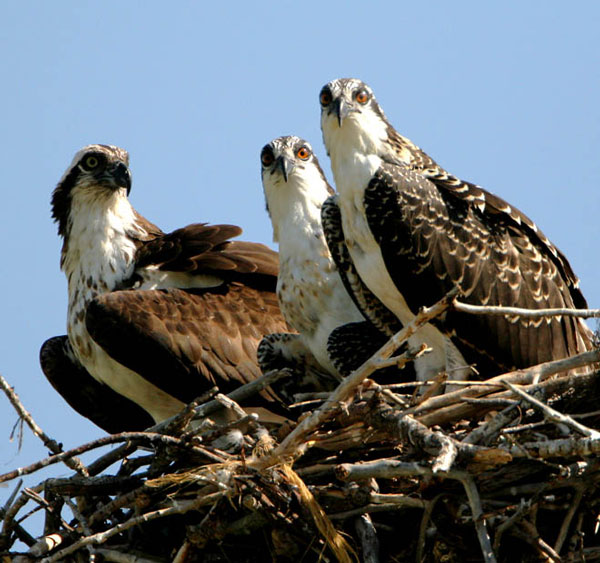 Usually
around 52 days after hatching, the young are able to fly though
they remain near the nest where they feed on fish provided by the
parents. Usually
around 52 days after hatching, the young are able to fly though
they remain near the nest where they feed on fish provided by the
parents. |
Almost Ready to Fly, by Kent Keller
İKent R. Keller
|
|
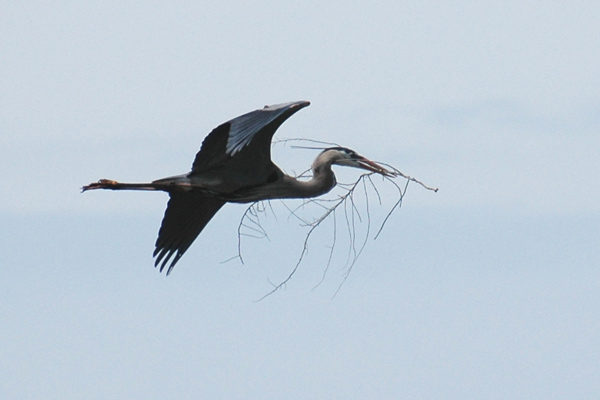 Great
Blue Herons build their nests in a variety of places.
They can be on the ground, on cliffs, among bulrushes or in
fairly large trees. Great
Blue Herons build their nests in a variety of places.
They can be on the ground, on cliffs, among bulrushes or in
fairly large trees. |
Nest Building, by Shelly Spencer
İShelly Spencer
|
|
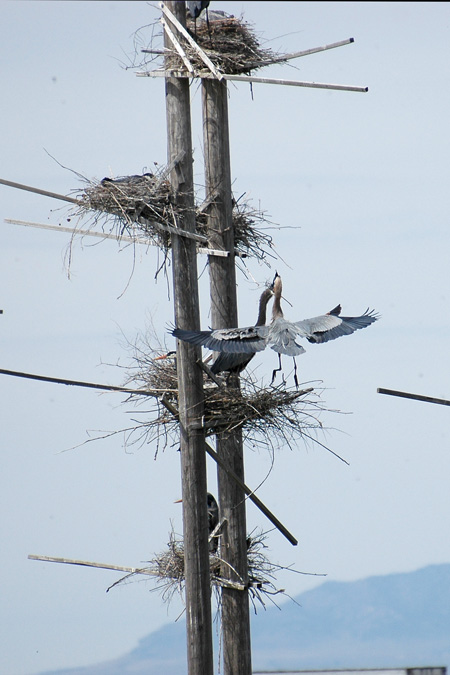 They
can nest by themselves or in groups consisting of a few pairs to hundreds
of nesting pairs. They
can nest by themselves or in groups consisting of a few pairs to hundreds
of nesting pairs. |
High-rise Rookery, by Shelly Spencer
İShelly Spencer
|
|
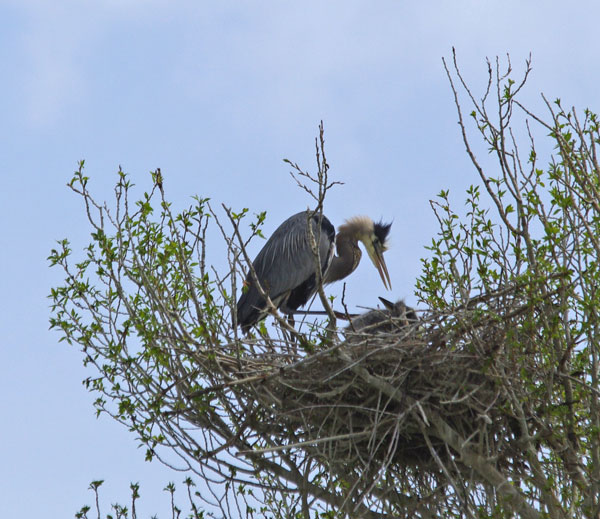 They
lay from 3 to 7 eggs but usually 4, which both parents incubate
for about 28 days tuning the eggs by rolling them with their bills
about every two hours. Some of the young can fly after about 60
days but usually stay around the nest from 64 to 81 days after
hatching. They
lay from 3 to 7 eggs but usually 4, which both parents incubate
for about 28 days tuning the eggs by rolling them with their bills
about every two hours. Some of the young can fly after about 60
days but usually stay around the nest from 64 to 81 days after
hatching. |
Great Blue Heron Nest, by Marlene Foard
İMarlene Foard
|
|
|